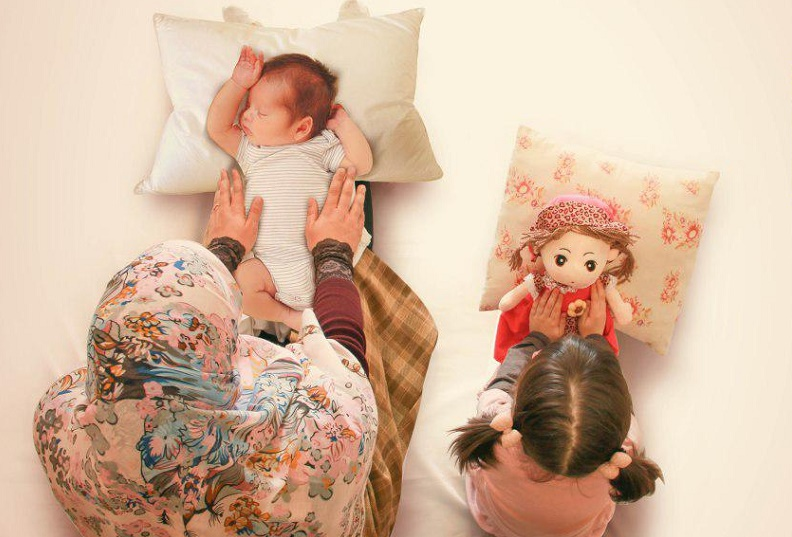Make screening “optional” / Population rejuvenation and its qualitative and psychological requirements

group Life; نعیما جاویدی: “Implementing the family-centered population rejuvenation and excellence plan requires urgent and serious steps to localize screening knowledge. We send the blood of some pregnant mothers abroad to ensure the health of the fetus, at a cost of dollars. “This is not good in terms of the possibility of ‘bioterrorism’ and the outflow of currency from the country.” Is. The bill was recently approved by the Islamic Consultative Assembly. He believes that screening should be changed from “mandatory” to “optional” as one of the important aspects of this demographic plan to encourage young couples to have children and ensure better health of the baby and mother, as well as to prevent abortion and fetal death. Slowly
In explaining his point of view, Dr. Allameh has detailed explanations and reasons that in addition to studying in this field and examining the actions of successful countries in producing offspring, child and mother health, he also cites his medical experience and obstetricians and infertility specialists. What and why screening and its impact on the population, the need to review some regulations of the Ministry of Health in the field of population and localization of fetal health diagnosis methods based on knowledge, expertise and initiative of elites and knowledge-based companies active and committed in This is the main part of our conversation with Dr. Allameh about this newly approved plan.

***Examining your interviews and concerns shows the emphasis on attracting the attention of decision-making institutions in the field of population to reduce the psychological and economic costs of pregnancy as one of the qualitative effective factors in incentive policies to increase population. In your opinion, one of the obstacles for young women to get pregnant is fear. What is the main cause of this fear and worry in your opinion?
Screening is done to diagnose chromosomal abnormalities and to investigate the possibility of downogenesis, which gradually became compulsive. He asked why compulsion ?! Because if the doctor accepts the mother and the baby is born in Down after the birth, the doctor will be found guilty through the judiciary for not being diagnosed and will have to pay for the care of the baby. This eventually led doctors to insist on screening tests.

Consider a young woman who sees a doctor on her first pregnancy experience, which could be the best moment of her life, but is told she needs to have some tests because she may have a baby. There is. How will it feel? Doesn’t fear and stress take over his whole being just when he could have experienced the good feeling of being a mother? We are not talking about eliminating screening; Whenever the patient has a suggestion or request or the doctor deems it necessary, it should be done, but what is the insistence for everyone to do it by force? Whether for a mother who lives in the city or who lives in highlands and impassable areas or on the edge of the desert and do not have access to a reputable laboratory. The doctor is also weak against this possibility; Down does not have a defense against the birth of a baby and has to pay for the maintenance of the baby Down, but inevitably emphasizes the need and standard. This emphasis is exaggerated.

Another look; Now that it is important to consider the possibilities of pregnancy, I, the doctor, should also be concerned about the pregnant mother, who is completely restless and has poor mobility and stress, or a mother who has to travel several times a long distance to reach the laboratory. … For “amniocentesis” it is necessary to take a sample of the amniotic fluid in which the fetus is placed, it may not be low risk and low stress for the mother or fetus. Obviously, women who experience a pregnancy away from stress and relaxation and enjoy the joy of motherhood away from this stress will probably seek to repeat this good experience. This is very important for the quality of projects such as population rejuvenation.

*** Why has screening become, in your opinion, a mandatory and universal test for pregnant mothers in practice? That is to say, at some point in the birth rate in the country rose that such a decision was made?
This statistic in our country was not more than the global norm. Let me ask a question; Do you not see a child with “running” at all now that you are walking in the streets? How many children with this disorder have we seen in one neighborhood before? Why don’t the developed countries of the world, which have good health per capita and have implemented good population policies, take such measures? Unfortunately, we have problems in prioritizing in this area. The huge costs and efforts of our health care network are focused on an issue that is not a priority and there are more important priorities. In the process of informing, informing and informing pregnant mothers about a weak possibility, we unfortunately see with great concern, even in spite of the family’s economic problems, that they perform expensive screening to relieve their anxiety.
Cut
I was sick, they sold their motorcycles for a screening test. Her child was healthy, but she had no money left to pay for the birth. This is really sad in general. Rest assured, if a strict court order that a doctor had to pay for Down’s birth would not have paid off, there would have been no such emphasis, advice, or exaggeration for a “rare thing.” I say that there are more serious issues about the health of the baby and the fetus that, incidentally, should be given more attention.

*** You talked about more important priorities and more serious issues in the field of population and maternal and infant health. More details are needed in this regard, please.
We said that parents spend their money out of concern for a possible and rare thing that can neither be prevented nor treated. Out of every 1,500 babies, it is only “probable” that one baby will be born with Down. This possibility may have been violated many times with the birth of a healthy baby, but the fact that the mother and child in the delivery stage need a doctor, medical center and proper care, and the fact that not “probably” but certainly affects the quality of pregnancy and childbirth is a priority. it’s on. Screening costs a lot, making it difficult for parents to cover the rest of the costs. Who can hide the fact that good nutrition has no effect on the health of the fetus and mother ?!

It is obvious that the mother loses her nutrition during pregnancy to perform these tests. Perhaps neonatal disorders that can be prevented, treated, and cured. Cases that are unfortunately not seen under the heavy shadow of screening and compulsion to do so.

*** How important and serious are these disorders and what causes them not to be seen as they should be?
Treatment of infertile couples, female infertility, premature infant mortality, and the like are unfortunately not “rare” priorities that are also “more common” problems and are fortunately solvable. For example, why is the death rate of our premature babies many times higher than in European countries? Why should we have a premature baby and how can this problem be solved or reduced? I see the problem in the “non-indigenousness” of population policies and the health care network, which have not been as they should be and perhaps are not indigenous, and are presented from outside, that is, from international organizations. Why is the number of countries that are our role models in screening really small, and in Europe these tests are by no means mandatory and can rarely be done while their per capita health care is ahead of us?

*** So localization of health services and procedures You mean, for example, how local is this screening?
Yes, exactly. We have to import the screening test kit at the daily rate and in dollars. Interestingly, even countries with a per capita national income and access to health care network services and accurate laboratories for fetal malformations are not required to be screened. If we were as concerned about importing kits and the total cost of the health care network for screening tests on healthy eating, mental health and monitoring infant and maternal health as well as caring for premature babies, our demographics would be better today. Another point is that making these kits is definitely not impossible for the motivated and talented elites of the country. Localization in the field of screening is very important and can even protect the country against “bioterrorism”, just as the continuation of this process of non-localization of screening in the country makes the next generation vulnerable to the possibility of bioterrorism.

**** The possibility of bioterrorism that you mentioned is certainly important these days, given the debates that are taking place in the area of the need for the country’s capability in active defense, but what made you give such a possibility? How can a laboratory kit be imported? Involved in this affair?
It is not a matter of entering the kit. Screening has several stages. Sometimes, by doing one or two things, a diagnosis of fetal health or unhealthiness is made, but the possibility of error must also be considered. Sometimes, however, there is a need to do a final step by sampling the pregnant mother’s blood and sending it to other countries at a significant cost and at the current dollar rate because we do not have the necessary laboratory and diagnostic facilities. Blood is a complete biological sample. Which country, given the threat and potential of bioterrorism today, will provide biological samples of its next generation to another country, which we unfortunately do? It also pays a considerable fee and in dollars!

*** Regarding the case you are talking about, how can the field and time be taken to maintain and maintain the health security of the country?
Two actions are required quickly and simultaneously. First, a review of screening rules and guidelines means the same change from coercion to discretion. Second, the construction and localization of the country’s healthcare facilities by young elites and specialists. In this case, any test is necessary here in the same country with much lower cost and higher speed. On the other hand, the health security of the population against “bioterrorism” is maintained and strengthened.

*** You mentioned that screening procedures in European countries are different from ours, and at the discretion of physicians and specialists, there is a need for further explanation for cases with high risk and probability, and that they have other policies and priorities.
Compulsory screening is “unscientific”, “non-standard” and “unfair”. Not just to rejuvenate the population but to increase the quality of demographic indicators. Our focus should be on infertility treatment, health and proper nutrition during pregnancy, monitoring and resolving problems in the area of premature birth and reducing infant mortality. We need to lower infant mortality rates like Britain and other European countries. Countries that happen to have good screening facilities, but are used only when necessary and at the discretion of the doctor in cases of high-risk pregnancies and desired by parents.
End of message /
You can edit this post
Suggest this for the front page
.

